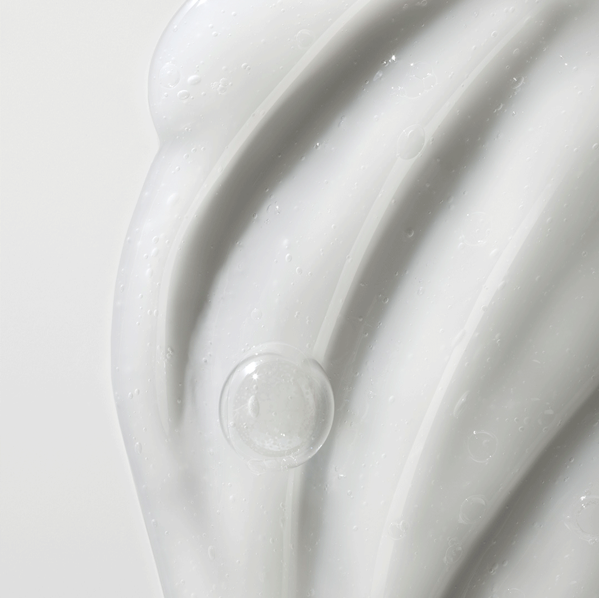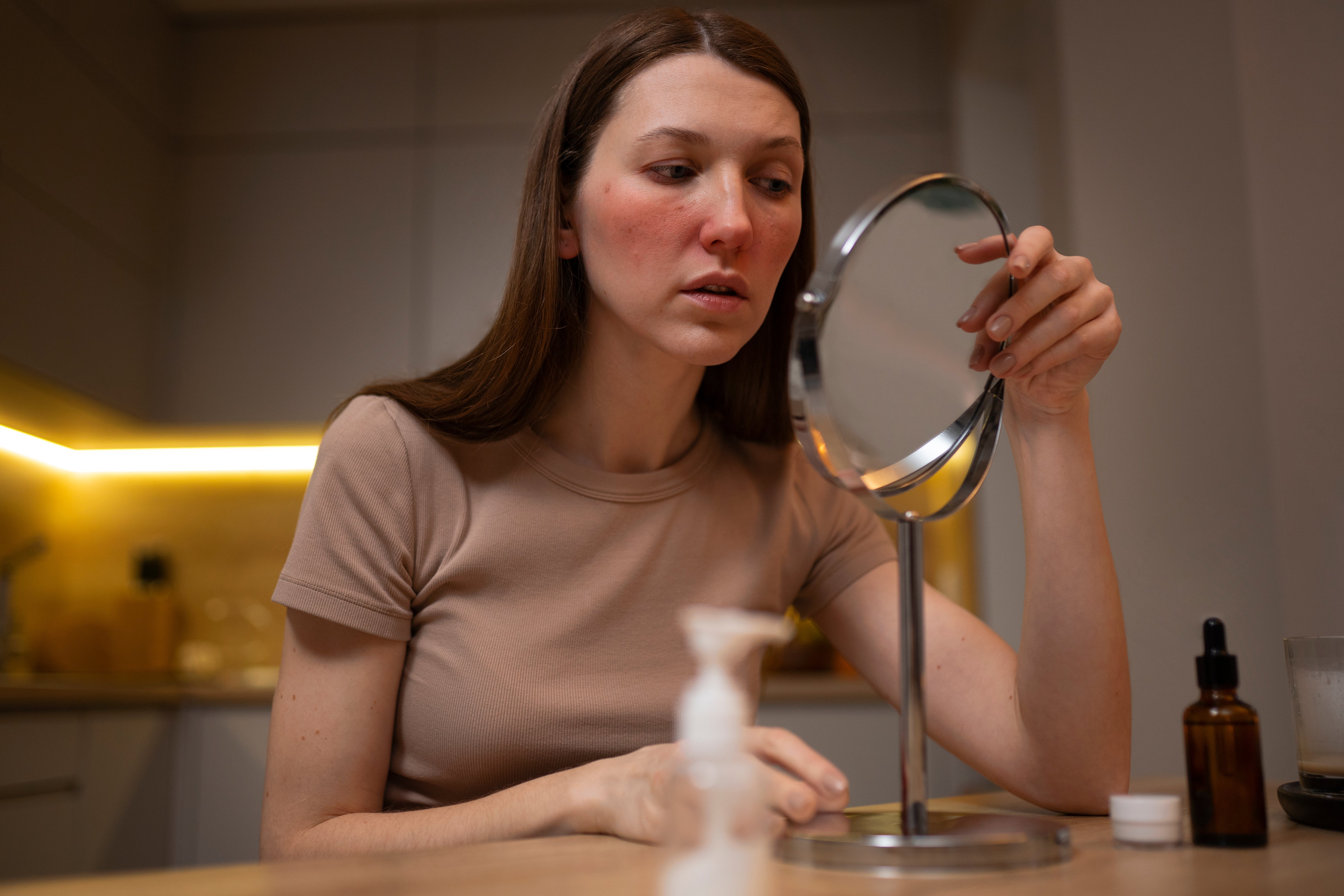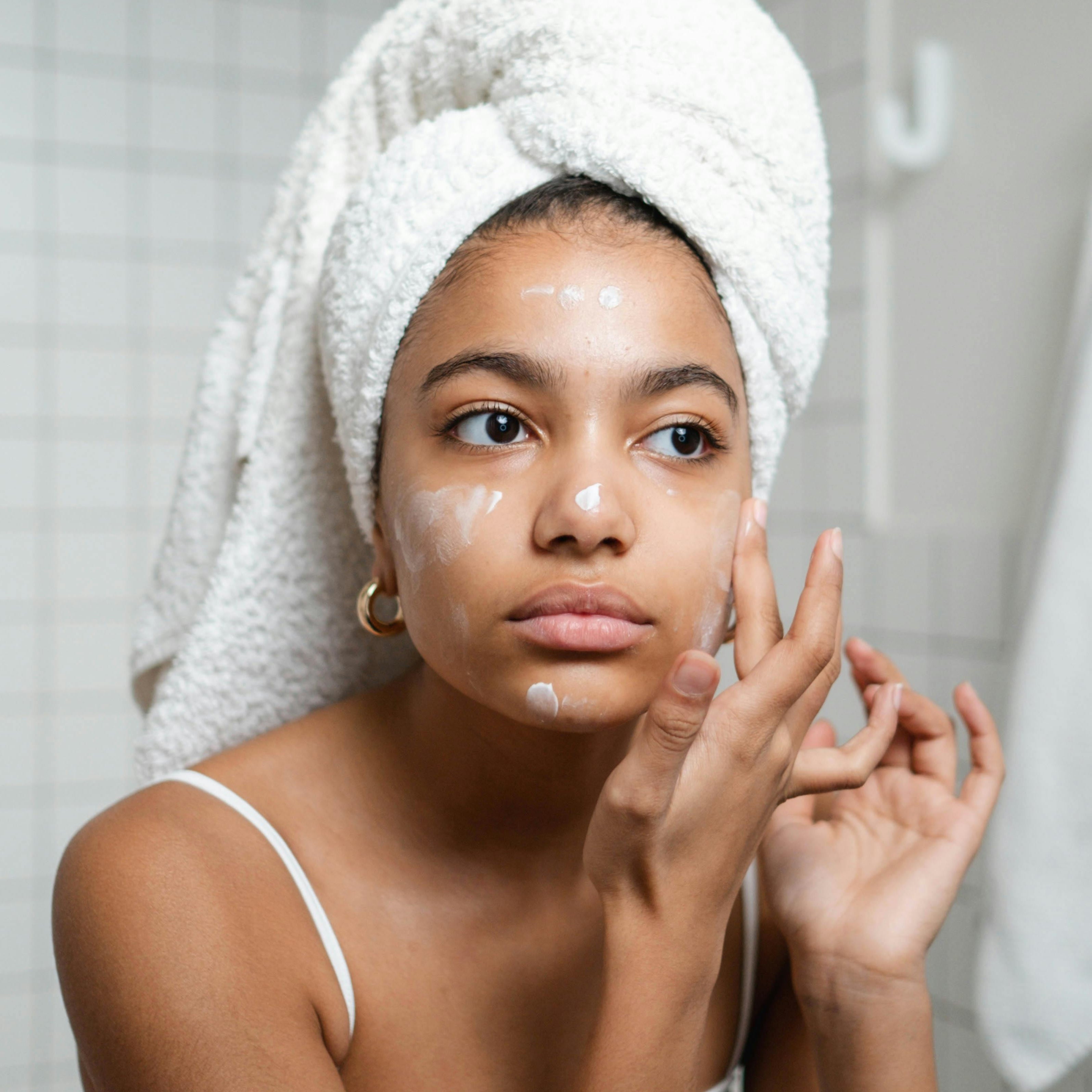Adulting is a non-stop hustle, and stress has become an almost constant companion. Between juggling demanding careers, navigating family chaos, and dealing with the constant Insta pressure to look like we’ve got it all together, just finding time to breathe feels like a win.
Work-related stress, in particular, is on the rise, especially among the younger generations: new research shows 81% of 18 to 24 year olds and 83% of 25 to 34 year olds reporting burnout, compared to just 49% of those aged 55 and older.

But while we might be aware of the toll stress takes on our mental and emotional well-being, we tend to overlook the impact it has on our physical appearance, especially our skin. There is plenty of evidence that shows stress can cause or exacerbate common skin conditions like acne, eczema, psoriasis, and rosacea.
They say beauty comes from within and at Lighthouse, we believe in a holistic approach to skincare. But we’re also data-driven and always look for science-backed solutions to help you achieve true radiance. Our mission is to give you all the research and insights you need to make informed decisions about the skincare you buy.
In this blog post, we’re shedding light on skin conditions brought on by stress. We’ll explore the profound connection between stress and your skin and give practical steps to reclaim a healthy glow.
The Domino Effect
Have you ever noticed a breakout appearing just before a big presentation, or a flare-up of eczema during a particularly challenging period? These are not mere coincidences. Our skin, the body’s largest organ, acts as a visible barometer of our internal state.
When we experience stress, our bodies release a cascade of hormones, most notably cortisol, the stress hormone. While cortisol plays a vital role in our body’s natural fight or flight response, prolonged elevation can wreak havoc on our skin’s delicate balance.
Skin Conditions Brought on by Stress
The intricate relationship between stress and skin health manifests in various ways, often exacerbating pre-existing conditions or even triggering new ones. Let’s dive into some common skin concerns linked to stress:
1. Acne
Perhaps the most commonly skin woe associated with stress, acne breakouts are normally a direct result of hormonal fluctuations. However, while stress can’t directly cause acne, studies have shown that if you already have acne, stress does make it worse. Researchers have found that wounds, including acne, heal much more slowly when a person is under stress.
Cortisol surges can also stimulate the sebaceous glands to produce more sebum, an oily substance that can clog pores. This excess oil, combined with dead skin cells and bacteria, creates the perfect breeding ground for those unwelcome blemishes.
What’s more, stress can disrupt the skin’s natural barrier function, making it more susceptible to inflammation and infection, leading to more severe and persistent acne. So stress is certainly a factor when it comes to breakouts.
2. Eczema (Atopic Dermatitis)
For people prone to eczema, which is characterised by itchy, red, and inflamed skin, stress has been cited as the single biggest trigger of their eczema flare-ups, with significantly more women (57%) affected than men (41%).
When people are stressed, they often have a disrupted immune system, which leads to an overactive inflammatory response in the skin. This can intensify itching, dryness, and the characteristic rash associated with eczema, making it even more uncomfortable and challenging to manage.
The psychological distress of an eczema flare-up can, in turn, create a vicious cycle of stress and worsening skin.
3. Psoriasis
Another chronic inflammatory skin condition, psoriasis causes skin cells to multiply rapidly, resulting in thick, scaly patches on the skin. Stress triggers inflammatory pathways in the body, which makes the condition worse.
However the connection between stress and psoriasis is complex as it affects patients both ways: stress is a known trigger of psoriasis flares, while people who develop these patches may stress about the way psoriasis makes them look and feel.
Periods of high stress can lead to new flare-ups, increased severity of existing lesions, and heightened itching and discomfort. Psoriasis is stressful in itself, but managing stress becomes a crucial component in controlling psoriasis and improving the quality of life for those affected.
4. Rosacea
This condition, characterised by facial redness, flushing, visible blood vessels, and sometimes small, red bumps, can also be aggravated by stress. While the exact cause of rosacea is unknown, stress is a well-documented trigger for flare-ups.

The release of stress hormones can lead to vasodilation, causing blood vessels in the face to widen, resulting in increased redness and flushing. Emotional stress, anxiety, and even excitement can all contribute to rosacea symptoms. Find out more about rosacea and how to deal with it. [add link to rosacea blog when ready]
The Science Behind the Stress-Skin Connection
Understanding the biological mechanisms at play can empower us to take more informed steps towards managing stress and its effects on our skin.
Stress-related skin issues are linked to the body’s stress response. When stressed, the body triggers the hypothalamus-pituitary-adrenal (HPA) axis, leading to the release of cortisol, a steroid hormone. Excess cortisol can disrupt the body’s hormonal balance, leading to decreased estrogen levels, increased oil production, and a breakdown of collagen and elastin, ultimately causing skin issues like wrinkles, dryness, and acne.
Here’s what happens to your skin when you’re struggling with cortisone overproduction caused by stress.
-
Inflammation: Cortisol can also influence the body’s immune system. Stress triggers the release of inflammatory cytokines, which can exacerbate inflammatory skin conditions like acne, eczema, psoriasis, and rosacea. This chronic inflammation can also contribute to premature ageing.
-
Oil Production: Elevated cortisol levels stimulate the sebaceous glands to produce more oil, which can clog pores and contribute to acne.
-
Collagen Breakdown: Cortisol can also accelerate the breakdown of collagen and elastin, essential for skin elasticity, potentially contributing to premature aging.
- Skin Barrier Function: Cortisol can disrupt the skin’s natural barrier function, making it more vulnerable to environmental aggressors, irritants, infections, and moisture loss, leading to dryness and sensitivity and potentially exacerbating conditions like eczema.
Finding Your Inner Zen: Practical Tips for Stress Management and Soothing Your Skin
The good news is that by taking proactive steps to manage stress, you can significantly improve the health and appearance of your skin. It may sound obvious, but it’s good to be reminded to press pause on our lives now and then. If you’re looking for a holistic approach to managing both stress and skin health, then here are some actionable strategies to incorporate into your daily life:

Level up your chill
Practices like deep breathing exercises, meditation, and yoga can help calm the nervous system, reduce cortisol levels, and promote a sense of inner peace. Even a few minutes of daily mindfulness can make a difference.
Sweat it out
Physical activity is a fantastic stress reliever. Exercise releases endorphins, which have mood-boosting effects. Aim for at least 30 minutes of moderate-intensity exercise most days of the week.
Sleep goals
Lack of sleep can exacerbate stress and disrupt hormone balance, negatively impacting your skin. Aim for seven to nine hours of quality sleep each night. Establish a relaxing bedtime routine to promote restful sleep.
Be gentle on your skin
When your skin is stressed, harsh products and aggressive treatments can further irritate it. Opt for a gentle and nourishing skincare routine using mild cleansers, hydrating moisturisers, and soothing ingredients. Look for products formulated with calming botanicals and antioxidants.
Fuel your body
A balanced diet rich in fruits, vegetables, and healthy fats can support overall well-being and skin health. Limit processed foods, sugary drinks, and excessive caffeine, which can contribute to inflammation and stress.
Lean on your IRL (in real life) tribe
Don’t hesitate to reach out to friends, family, or a therapist if you’re struggling with chronic stress. Talking about your concerns and developing healthy coping mechanisms is crucial for both your mental and physical health.

Lighthouse Recommendations for Soothing Stressed Skin
At Lighthouse, we understand the delicate balance of stressed skin. We’ve hand-picked the best products out there, designed to be gentle yet effective, nurturing your skin back to a state of calm and radiance.
Several skincare ingredients can help alleviate stress-related skin issues by calming the skin, reducing inflammation, and supporting skin barrier function. Key ingredients include ceramides, hyaluronic acid, niacinamide, and calming botanical extracts like chamomile and lavender.
Your next level skin starts here: these are just a few game-changers to add to your daily ritual:
-
Revision Gentle Foaming Cleanser: A soothing, soap-free cleanser containing chamomile with a rich velvety foam that comforts and moisturizes all skin types, leaving it smooth and soft.
-
Hyalu B5 Hyaludronic Acid Serum: An anti-aging, ultra-hydrating, repairing serum powered by pure hyaluronic acid to plump skin, refine fine lines and deeply moisturize.
-
Toleriane Double Repair Matte Moisturizer: A double-action gel containing niacinamide that provides double the repair, giving all-day, shine-free hydration and restoring skin after just one hour.
-
D·E·J Night Face Cream: Unveil new skin overnight with this age-defying moisturizer packed with ceramides plus 0.25% retinol and bakuchiol: a hydrating, antioxidant-rich formula that minimizes irritation.
By understanding the intricate link between stress and your skin, and by adopting a holistic approach that addresses both your mental well-being and your skincare routine, you can take proactive steps towards a calmer, healthier, and more radiant complexion.

Toleriane Double Repair Matte Moisturizer
Don’t Let Stress Win (Especially on Your Face)
Check out our skin-loving lineup and book a one-on-one with our consultants for the real talk on managing skin conditions brought on by stress. Ready to take charge of your skin’s well-being?





